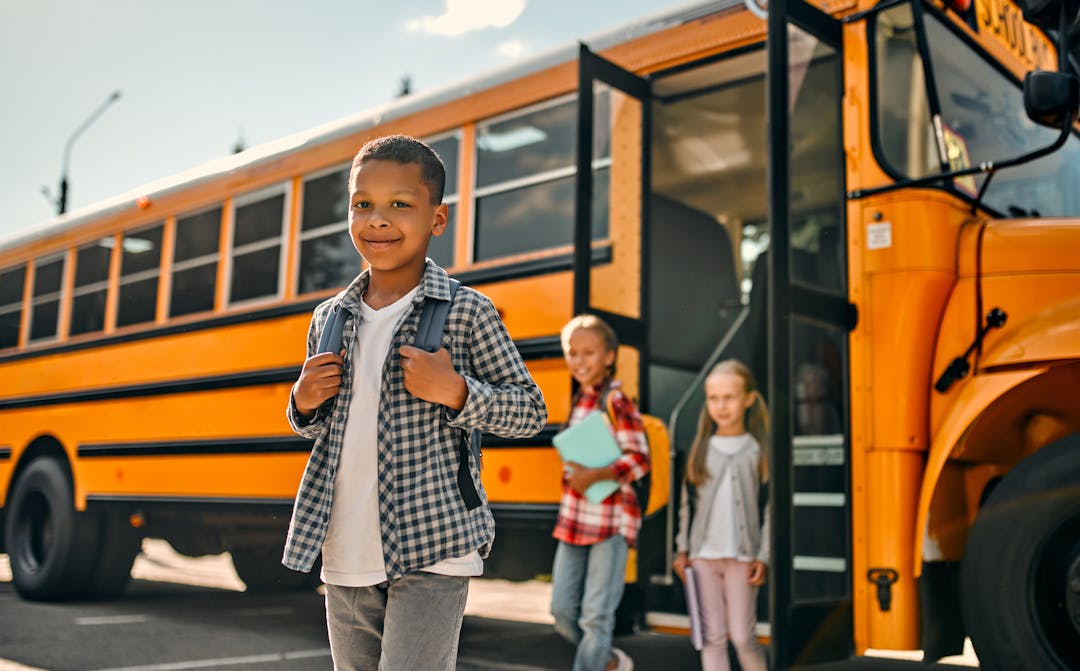Blog Details
Read our article everyday

Beyond the School Gates: Exploring the Adventures of Transportation
As the sun rises and the school bell beckons, children eagerly set out on their daily commute to school, embarking on a journey filled with camaraderie, discovery, and boundless possibilities. Whether they're hopping on a school bus, cycling along neighborhood streets, or carpooling with friends, transportation to school is more than just a means of getting from point A to point B—it's an integral part of the childhood experience, brimming with excitement and adventure. 1. Social Connections: One of the most rewarding aspects of transportation to school is the opportunity for children to forge meaningful connections with their peers. Whether they're sharing stories, playing games, or simply enjoying each other's company, the journey to school fosters bonds of friendship and camaraderie that extend far beyond the classroom walls. From swapping trading cards on the bus to planning weekend adventures with fellow travelers, transportation to school lays the foundation for lifelong friendships and cherished memories. 2. Sense of Independence: For children, transportation to school represents a rite of passage—a tangible symbol of growing independence and autonomy. Whether they're walking to the bus stop alone or navigating the streets on their bikes, the journey to school empowers children to take ownership of their daily routines and make decisions with confidence. This newfound sense of independence fosters resilience, self-reliance, and a sense of pride in their ability to navigate the world around them. 3. Parental Flexibility: Beyond the benefits for children, transportation to school offers parents a newfound sense of flexibility and freedom in choosing their ideal place to call home. By opting for alternative modes of transportation, such as school buses or carpooling arrangements, parents can bypass the need to live within close proximity to school districts, opening up a world of housing options beyond expensive real estate areas. This flexibility allows parents to prioritize other factors, such as neighborhood amenities, housing affordability, and quality of life, in selecting the perfect place to raise their family. 4. Environmental Impact: Embracing alternative modes of transportation to school, such as walking, biking, or carpooling, not only benefits individual families but also contributes to broader environmental sustainability efforts. By reducing reliance on single-occupancy vehicles and promoting eco-friendly transportation options, families can play a part in reducing carbon emissions, alleviating traffic congestion, and creating cleaner, healthier communities for future generations to enjoy. 5. Shared Experiences: Finally, transportation to school provides families with invaluable opportunities for shared experiences and quality time together. Whether it's singing along to favorite tunes during the morning commute or reflecting on the day's adventures during the ride home, the journey to school becomes a cherished part of the daily routine—a time for families to connect, bond, and create lasting memories together. In conclusion, transportation to school is more than just a logistical necessity—it's a gateway to new experiences, friendships, and opportunities for growth and exploration. By embracing alternative modes of transportation, families can foster social connections, promote independence, and enjoy the freedom to choose their ideal place to call home, all while contributing to a more sustainable and environmentally-friendly future. So let's hop on board, buckle up, and embark on the journey to school—a ride filled with adventure, camaraderie, and endless possibilities.
Otavio Levier Serra
. 10/15/2023
